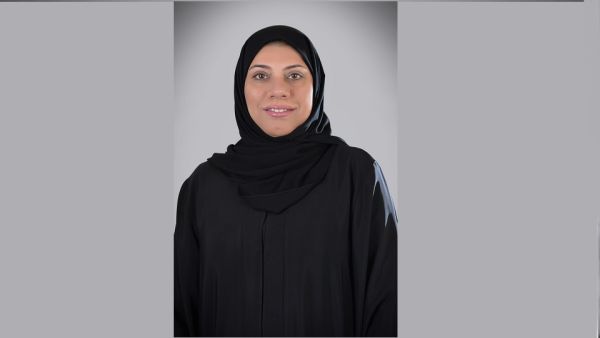DIFI panel highlights the impact of technological change and innovation on families

At an event organized by Doha International Family Institute (DIFI), in partnership with WISE and the World Innovation Summit for Health (WISH) – all members of Qatar Foundation – on the sidelines of the 5th United Nations Conference on the Least Developed Countries, representatives from around the world discussed the impact of technological changes on families on 7 March at the Qatar National Convention Centre in Doha, Qatar.
Moderated by Rawaa Auge, a presenter for Al Jazeera Media Network, the speakers addressed the effect of technological changes on family relationships, including marital, parental and intergenerational, and the impact of its use on the mental and physical health of both children and women, emphasizing the role that digital technologies can play in the education and health sectors, especially after the fluctuations that occurred post COVID-19. They also touched on the challenges, obstacles and risks facing children and women in the least developed countries, in addition to the act of policies and programs in supporting families to build on the opportunities offered by these technological advancements and innovations.
Sultana Afdhal, CEO of WISH, expressed her happiness at sharing the results of their research on ‘the impact of the increased use of digital technology by children on their health and well-being’, saying: “We have to be more mindful of the impact of digital technologies on young minds and build policies that allow them to enjoy the benefits of access to technology to help them reach their full potential in a safe and healthy way.”
Dr. Sharifa Noman Al-Emadi, Executive Director of DIFI, expressed her happiness at organizing the panel discussion in cooperation with other members of Qatar Foundation to discuss the impacts of technology on families, noting DIFI's constant interest in collaborative work to provide evidence that contributes to the development and implementation of family-friendly policies and programs in all health, social, economic and cultural aspects.
Laila Baker, Regional Director, UNFPA-Arab States, stressed the opportunities that technology provides to girls and women, highlighting the partnership that brings together UNFPA and DIFI in the least developed countries to support adolescent girls and women in using technologies in a way that improves their health, wellbeing, and community contribution.
Dr. Raian Ali, Professor in Information and Computing Technology, College of Science and Engineering, Hamad Bin Khalifa University, focused on digital parenting, stating: “Technology has the potential to both enhance and hinder family wellbeing and adolescent education, and to ensure effective digital parenting, it is crucial to prioritize a family-centered approach rather than solely focusing on children. Technology has provided an affordable source of entertainment for disadvantaged people and those with low income, it is essential to use it with a clear purpose and avoid relying on it to escape from reality.”
Professor Shekhar Saxena, Professor of the Practice of Global Mental Health, Global Health and Population, Harvard T H Chan School of Public Health, concluded the discussion by saying: “Least developed countries have an unprecedented opportunity to utilize the technological advancements and innovations to improve the physical and mental health of children in keeping with the United Nation’s Sustainable Development Goals.”
At the end of the session, an in-depth dialogue took place on the need to harness the power of science, technology, and innovation in the interest of families in the least developed countries, in addition to enhancing the participation of these countries and communities in international trade and regional integration to achieve prosperity, addressing the global dilemma of climate change and resilience.
Background Information
Qatar Foundation
Qatar Foundation (QF) is a non-profit organization made up of more than 50 entities working in education, research, and community development.
Our unique ecosystem—supported by partnerships with leading international institutions—is built on initiatives that address our most pressing challenges, create global opportunities, and empower people to shape our present and future.






